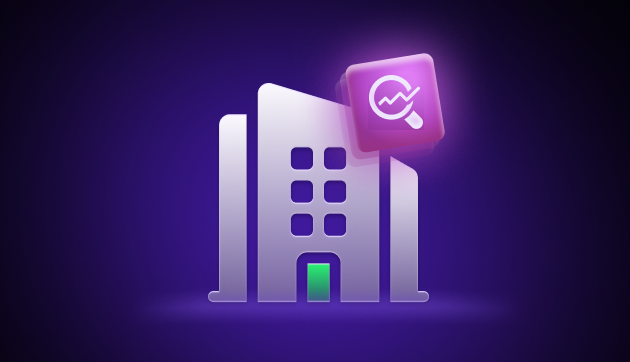
Are you wondering how to transition into a high-growth, high-demand role, even if you’re not from a technical background? Then, a career in Business Analyst (BA) can be your gateway into the tech and business world, where logic meets leadership, and data meets decision-making. Business Analysis is a dynamic and rewarding career path that plays a critical role in today’s data-driven organizations. As companies continue to digitally transform and adapt to competitive markets, the demand for skilled Business Analysts has never been higher. Business Analysts act as the strategic bridge between stakeholders and developers, improving customer experience, optimizing processes, and launching new products.
The best part? You don’t need to be a coding expert to break into this field. With the right mindset, skills, and roadmap, anyone can transition into a successful career as a Business Analyst. In this blog, you’ll find a step-by-step business analyst career roadmap that covers everything from foundational knowledge and essential tools to certifications, real-world projects, and job opportunities. Let’s dive in and map out your journey to becoming a successful Business Analyst!
Table of contents
- Why Choose a Career in Business Analysis?
- Rising Demand Across Industries
- Versatile Job Roles
- Problem-Solving & Strategic Impact
- Competitive Salaries & Career Growth
- Step-by-Step Business Analyst Career Roadmap
- 1. Build a Strong Foundation in Business and Technology
- Learn Core Business Analysis Skills
- Get Hands-On with Tools
- Understand Data and Reporting
- Work on Real-World Projects or Case Studies
- Build a Strong Portfolio and Resume
- Earn Certifications:
- Network and Apply for Entry-Level Roles
- Who Should Consider a Business Analyst Career?
- Students
- Working Professionals
- Career Opportunities for Business Analysts
- Business Analyst (IT / Non-IT)
- Product Analyst
- Functional Consultant
- Process Improvement Analyst
- Business Intelligence Analyst
- Data Analyst with a Business Focus
- Wrapping Up
- Frequently Asked Questions
- What does a Business Analyst do?
- Do I need a technical background to become a Business Analyst?
- How long does it take to become a Business Analyst?
- What tools should I learn as a beginner?
Why Choose a Career in Business Analysis?
Are you a student planning your professional path or a working professional considering a career shift? You’ll discover how Business Analysts are driving value across industries, what makes the role versatile and impactful, and why it’s among the most in-demand and well-compensated jobs today from the section below.
Rising Demand Across Industries
In today’s digital-first economy, organizations across all sectors, be it finance, healthcare, retail, logistics, or IT, are generating massive amounts of data. But without actionable insights, this data is just noise. That’s where Business Analysts (BAs) step in. Companies rely on BAs to interpret this information, spot trends, and translate it into strategies that lead to efficiency and growth. The demand for skilled analysts is on the rise globally, and the role is becoming increasingly critical for businesses looking to stay competitive.
Versatile Job Roles
One of the most attractive aspects of a career in business analysis is its versatility. BAs are not pigeonhole into one department or domain. They work in IT helping implement new systems, in finance optimizing budgets, in HR improving employee engagement, and in marketing analyzing customer data. Whether you’re inclined toward people, processes, or products, business analysis allows you to specialize and grow in the direction that suits your interests and skills.
Problem-Solving & Strategic Impact
At its core, business analysis is about solving problems and driving positive change. As a BA, you identify gaps, uncover inefficiencies, and propose practical solutions that improve performance and customer satisfaction. You’re often the link between technical teams and stakeholders, making sure the final outcome is aligned with the business’s goals. This ability to influence strategy and shape successful outcomes makes your contribution highly valued and rewarding.
Competitive Salaries & Career Growth
Business Analysts enjoy lucrative salary packages that reflect their critical role within an organization. Entry-level analysts earn impressive starting salaries, and experienced professionals can move into roles like Senior BA, Product Owner, Business Consultant, or Strategy Manager. Some even transition into leadership positions such as Project Manager or Product Lead. The career path is flexible and upwardly mobile, with plenty of opportunities for continuous learning and growth.
Step-by-Step Business Analyst Career Roadmap
This roadmap will guide you through learning core concepts, gaining real-world project exposure, and preparing for interviews in a strategic, step-by-step manner. It breaks down each critical stage of the journey, outlining the skills you need to develop, the tools to master, and the steps to take to land a job in business analysis.
1. Build a Strong Foundation in Business and Technology
To begin your journey as a Business Analyst, it’s essential to understand both business processes and the technological landscape. Start by familiarizing yourself with key business concepts like operations, marketing, finance, and project management. Simultaneously, gain a basic understanding of IT systems, software development life cycles (SDLC), and data structures. This dual knowledge equips you to act as a bridge between business teams and tech teams, a core responsibility of BAs.
2. Learn Core Business Analysis Skills
Master the core skills every Business Analyst needs, including requirements gathering, stakeholder analysis, workflow modeling, and creating business requirement documents (BRDs). Learn to conduct SWOT and GAP analyses, and improve your ability to define problems and propose actionable solutions. These skills form the foundation of how BAs drive organizational change and innovation.
3. Get Hands-On with Tools
Modern Business Analysts rely heavily on tools to enhance their productivity and efficiency. Familiarize yourself with tools like Microsoft Excel for data handling, Microsoft Visio or Lucidchart for process mapping, and project management tools like JIRA, Confluence, and Trello. For data analysis, tools like SQL, Tableau, Power BI, and basic Python knowledge can give you a competitive edge. These tools not only streamline your work but also showcase your technical proficiency to employers.
4. Understand Data and Reporting
A large part of a Business Analyst’s job involves interpreting data and drawing actionable insights. Learn how to extract, clean, and analyze data using tools like SQL, Excel, and data visualization platforms. Understand how to interpret KPIs and performance metrics relevant to the business context. Strong data storytelling skills will help you convey your findings effectively to stakeholders and drive informed decisions.
5. Work on Real-World Projects or Case Studies
Practice is key to mastering the role of a Business Analyst. Participate in internships, simulated projects, or contribute to open-source initiatives. You can also work on personal case studies, identify a problem, collect data, analyze it, and propose a solution. Document your process clearly, including tools used, insights gained, and how they influenced decisions. These projects serve as powerful additions to your portfolio and help build your confidence.
6. Build a Strong Portfolio and Resume
Assemble your portfolio with documented case studies, sample BRDs, workflow diagrams, and dashboard reports you’ve created. Use a clean, professional format to showcase your approach, thought process, and problem-solving ability. Tailor your resume to highlight your analytical skills, tool proficiency, certifications, and project experience, especially those that show impact or business improvement.
You might like: A Complete Guide for Business Analyst Resume and Portfolio Creation
7. Earn Certifications:
Earning a Business Analyst certification helps validate your skills, build credibility, and boost your employability in this competitive field. When choosing a Business Analytics course, look for programs that balance theory with hands-on projects. A well-rounded Business Analytics course combines technical proficiency with strategic insight. It provides the necessary skills to analyze and interpret data, create actionable business strategies, and communicate findings effectively. Pick courses offering interactive assignments and access to tools commonly used in the industry, like Power BI. Seek courses with credible certifications from recognized institutions, like HCL GUVI’s Business Analytics Course, as these add significant value to your resume and provide assurance of quality learning.
8. Network and Apply for Entry-Level Roles
Start applying for roles like Junior Business Analyst, Business Analyst Intern, or Business Intelligence Associate. Use LinkedIn to connect with professionals in the field, join BA groups, and participate in discussions. Attend industry webinars, meetups, and workshops to stay updated and expand your network. A strong professional presence and persistence in job applications will eventually land you your first role.
Who Should Consider a Business Analyst Career?
Business analysis is a versatile field that attracts both fresh graduates and experienced professionals from diverse domains. Here, we outline two primary groups, students and working professionals, who stand to benefit most from pursuing this path.
Students
If you’re a student with an analytical mindset, a curiosity about how businesses operate, and a passion for data-driven decision-making, business analysis can be an ideal starting point. It doesn’t require deep coding skills, rather, it values structured thinking, effective communication, and a knack for problem-solving.
The role enables students to enter the tech or business world with a strong foundation and grow into more advanced positions like Product Manager, Data Analyst, or even Business Consultant. Plus, the relatively low barrier to entry makes it one of the most accessible and rewarding career options for graduates from any stream.
Working Professionals
Are you currently in a support, testing, BPO, or any non-technical role and craving a more strategic, well-paying job? Business Analysis could be your next big leap. It allows professionals to leverage their domain knowledge and pivot into roles that are core to business strategy and growth. With 6 to 9 months of focused upskilling, covering tools like Excel, SQL, Tableau, and learning key frameworks, you can confidently make the shift. This career path opens doors to roles in IT, finance, marketing, HR, and operations, giving you the flexibility to find your niche and grow with it.
Career Opportunities for Business Analysts
Business Analysts play a crucial role in bridging the gap between business needs and technological solutions. Here, we’ve outlined the most popular career paths available in the business analysis domain, each catering to different interests and skill sets.
1. Business Analyst (IT / Non-IT)
This is the most common entry point into the world of business analysis. Business Analysts gather requirements from stakeholders, create documentation like BRDs and FRDs, and ensure that business needs are communicated to the technical teams.
- IT BAs work closely with software development teams, often involved in SDLC processes like Agile and Scrum.
- Non-IT BAs focus on business operations, analyzing processes, and driving efficiency in domains like HR, supply chain, and finance.
Key Skills: Requirements gathering, documentation, stakeholder communication, process modeling (BPMN), basic SQL, Agile/Scrum methodologies.
Read More: Top Roles and Responsibilities of a Business Analyst
2. Product Analyst
Product Analysts focus on how users interact with a product and use data to improve the product experience. They work with product managers, designers, and developers to ensure product-market fit and feature effectiveness.
Ideal for those who enjoy user behavior analysis, data interpretation, and contributing to strategic product decisions.
Key Skills: Product metrics (DAU, churn rate), A/B testing, Google Analytics, SQL, visualization tools like Tableau or Looker.
3. Functional Consultant
Functional Consultants specialize in specific enterprise software or platforms (like SAP, Oracle, Salesforce). They bridge the gap between business requirements and technical implementations.
Often, this role involves configuring tools, training users, and ensuring business processes are supported by the right digital systems.
Key Skills: Domain knowledge, ERP/CRM platforms, solution documentation, stakeholder training, business process mapping.
4. Process Improvement Analyst
Focused on operational efficiency, these analysts work to identify inefficiencies and suggest ways to optimize workflows, reduce costs, and enhance output.
They often work with Six Sigma or Lean methodologies and are highly valuable in manufacturing, logistics, healthcare, and finance.
Key Skills: Process mapping, gap analysis, root cause analysis, Six Sigma/Lean, KPI tracking, stakeholder facilitation.
5. Business Intelligence Analyst
BI Analysts blend the worlds of data and business. They extract, clean, and analyze data to help business leaders make informed decisions. This role often involves developing dashboards and reports that translate complex data into actionable insights.
Key Skills: SQL, Power BI/Tableau, data warehousing, data storytelling, KPIs, Excel pivot tables.
6. Data Analyst with a Business Focus
While traditional data analysts focus on deep data exploration, a business-focused data analyst is more involved in using data for business decisions, forecasting sales, identifying market trends, or analyzing campaign performance.
Perfect for those who enjoy working with data but also want to stay close to business strategy and customer insights.
Key Skills: Python (optional), SQL, Excel, statistical analysis, business acumen, data visualization.
Wrapping Up
Business Analysis stands at the crossroads of data, strategy, and decision-making, an exciting career built for impact. Companies actively seek professionals who can bridge the gap between data and action, and Business Analysts lead that charge.
Start with foundational skills, build hands-on projects, and showcase your problem-solving mindset. Leverage your existing domain knowledge or academic background to transition into high-growth, high-impact roles across industries. The best part? You don’t need to be a tech wizard or have an MBA to get started. With the right learning, some hands-on projects, and a bit of curiosity, you can land a rewarding role in just a few months. So what are you waiting for? Start learning, start analyzing, and start building your future as a Business Analyst today. Your next big career move might be just one insight away!
Frequently Asked Questions
What does a Business Analyst do?
A Business Analyst identifies business needs, analyzes data, and recommends solutions to improve processes, products, or services. They act as a bridge between stakeholders and technical teams to ensure project success.
Do I need a technical background to become a Business Analyst?
Not at all. While some technical knowledge (like Excel, SQL, or basic data tools) helps, strong analytical thinking, communication, and problem-solving skills are more crucial. Many successful BAs come from non-technical backgrounds like commerce, HR, and operations.
How long does it take to become a Business Analyst?
With consistent effort, most learners can prepare for an entry-level Business Analyst role in 4–6 months. This includes learning tools, building projects, and mastering business concepts.
What tools should I learn as a beginner?
Start with Excel, SQL, and Power BI or Tableau for data visualization. As you advance, explore JIRA, Confluence, and wireframing tools like Balsamiq or Figma.




































Did you enjoy this article?